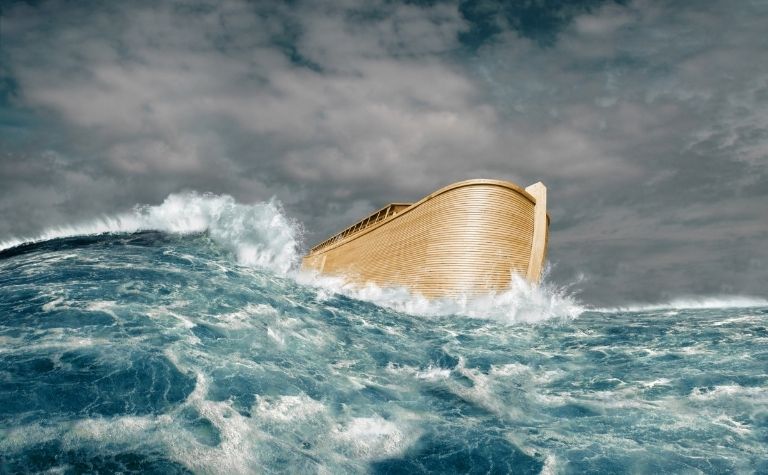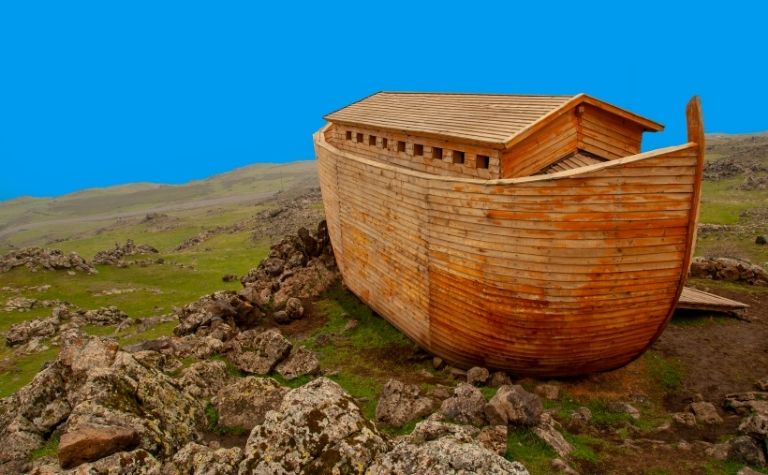The flood story in Genesis highlights the righteousness of Noah and his faith in God. However, the narrative ends in a tragic scene that includes Noah’s drunkenness, Ham’s unrighteousness, and a generations-long curse that the patriarch imposes upon Canaan and his descendants. Many readers find Noah’s curse on Ham to be one of the most puzzling scenes in Genesis.
Genesis scholars disagree about why Noah cursed Canaan, not Ham. Some speculate the curse looked forward to when the Canaanites occupied the land God promised Israel. Others think God couldn’t curse Ham because God blessed him (Gen. 9:1). Another view is that Canaan participated in the sin against Noah.
How did Noah’s curse of Ham anticipate future conflict? How did God theoretically prevent Noah from cursing Ham? Why do some people think that Canaan was the one who sinned against Noah, not Ham? What is the basis for the view that believes that Ham castrated Noah? What does that have to do with Canaan? Keep reading to learn the answers to these questions and others.
Also see What Did Ham Do To Noah? to learn more.

How did Noah’s curse of Ham anticipate future conflict?
Noah’s curse of Canaan is the first time the patriarch speaks in the flood story. Moreover, it’s the only time Genesis quotes him. So is Noah’s curse a declaration or a prayer request? Most Genesis scholars interpret the curse as a request, partly because Noah’s speech includes the phrase “may God” (Gen. 9:27). Yet it’s a request that God answers as the books like Numbers, Joshua, and Judges reveal (more below).
Canaan was Noah’s grandson, born to his third son, Ham. Hundreds of years after Canaan died, his descendants settled in the land God promised to Abraham and his offspring, the Israelites (Gen. 9-10; 12:1-3). After God freed the Israelites from slavery in Egypt, Moses and later Joshua led them north to the Promised Land, where the Canaanites dwelled and conflict was inevitable.
Why did the Israelites fight the Canaanites?
In order to seize the Promised Land, the Israelites had to fight the Canaanites. Judges 1:9-10 read, “And afterward the men of Judah went down to fight against the Canaanites who lived in the hill country, in the Negeb, and in the lowland. And Judah went against the Canaanites who lived in Hebron (now the name of Hebron was formerly Kiriath-arba), and they defeated Sheshai and Ahiman and Talmai” (ESV).
Were the Canaanites righteous? The Bible makes clear that the Canaanites were an evil people group and their expulsion from the land was an act of God’s judgment upon them. Leviticus 18:25 calls the Canaanites “unclean” (ESV) or “defiled” (NIV, NASB, KJV). Furthermore, they committed sinful “abominations” (ESV, NASB, KJV), which resulted in them being “vomited” (ESV, NIV) or “spewed” (NASB, KJV) out of the land (18:27-28).
Did the Israelites or Canaanites win the war? The Canaanites won some conflicts (Num. 14:45; Judg. 4:1-3), but the Israelites won others and collectively pushed them out of the land (Num. 21:1-3; Josh. 11:1-16; Judg. 4:4-24). God told the Israelites to destroy the Canaanites (Exod. 23:23-24; Deut. 19:1; 31:3-5), but they didn’t thoroughly obey his instructions (Josh. 17:12-18; Judg. 1:1-33; 3:1-3).
Did Noah’s curse anticipate future conflict with the Canaanites?
One Genesis scholar writes that the curse “concerns the life of later Israel as it anticipates entry into the land of Canaan. As the patriarchs’ actions may foreshadow the national life of Israel, for example, Abraham’s descent into Egypt (12:10-20), the lives of the antediluvian fathers modeled in a sense the future nations derived from Noah’s sons.” [1]
He continues, “Shem, the father of Abraham, is the paradigm of later Israel; and Ham of their archenemies, Egypt and Canaan (10:6). Lying behind this is the ancient concept of corporate personality. Because of this unity of father-son, the character of the father is anticipated in the deeds of the sons… the curse is directed at Ham’s sons as Ham’s just deserts for the disrespect he had towards his own father.” [2]
Also see Who Was On the Ark With Noah? to learn more.

Did God prevent Noah from cursing Ham?
Another theory is that Noah couldn’t curse Ham because God already blessed him. After the floodwaters dissipated, Genesis 9:1 reads, “And God blessed Noah and his sons and said to them, ‘Be fruitful and multiply and fill the earth'” (ESV). The blessing is reminiscent of God blessing Adam and Eve and instructing them to be fruitful and multiply (Gen. 1:28).
According to this view, because God’s blessing protected Ham, Noah cursed his grandson, Canaan. However, nothing in the passage indicates that Noah couldn’t curse Ham or that a blessing prevented a person from receiving consequences for sinful actions.
Was Canaan the one who sinned against Noah?
Another explanation for Noah’s curse of Canaan is that he, not his father Ham, saw his grandfather’s nakedness. Yet all Bible translations report that Ham sinned against his father because that is what the Hebrew text teaches. Genesis 9:22 reads, “And Ham, the father of Canaan, saw the nakedness of his father and told his two brothers outside” (ESV).
Nevertheless, some readers speculate that Canaan was at fault, which is why Noah cursed him and his descendants. Some readers infer this viewpoint from the text, though nothing in the passage suggests it. Others speculate that someone edited or corrupted the text so that it incorrectly blames Ham. However, there is no evidence that the text has been changed.
Also see When Did Noah Build the Ark? to learn more.

Did Noah curse Canaan because Ham castrated him?
One centuries-old explanation for Noah cursing Canaan argues that Ham’s castration of his father caused it. This viewpoint contends that when the text says that Ham “saw” Noah’s nakedness (Gen. 9:22) and his father woke up and knew what Ham “had done” (Gen. 9:24), it implies castration.
To be clear, the text offers no straightforward description of castration. Rather, the view comes from trying to explain why Noah cursed Canaan, not Ham.
Proponents of this view, of which there are few today, believe that since Ham prevented his father from having a fourth son because he castrated him, Noah cursed Ham’s fourth son, Canaan (cf. Gen. 10:6).
Also see How Many Sons Did Noah Have? to learn more.
References:
[1] Genesis 1-11:26 by Kenneth Mathews. p. 421.
[2] Ibid.
[3] Source
Related Questions
Noah's ark is one of the most iconic structures in the Bible. It was 450 feet long (137.6 m), 75 feet wide (22.86 m), and 45 feet high (13.71 m). God commanded Noah to build an ark to save him, his...
Noah is a central figure in the book of Genesis. The New Testament praises his faith (Heb. 11:7), which he demonstrated in the story of the flood that God sent to destroy the earth. Because Noah is...
